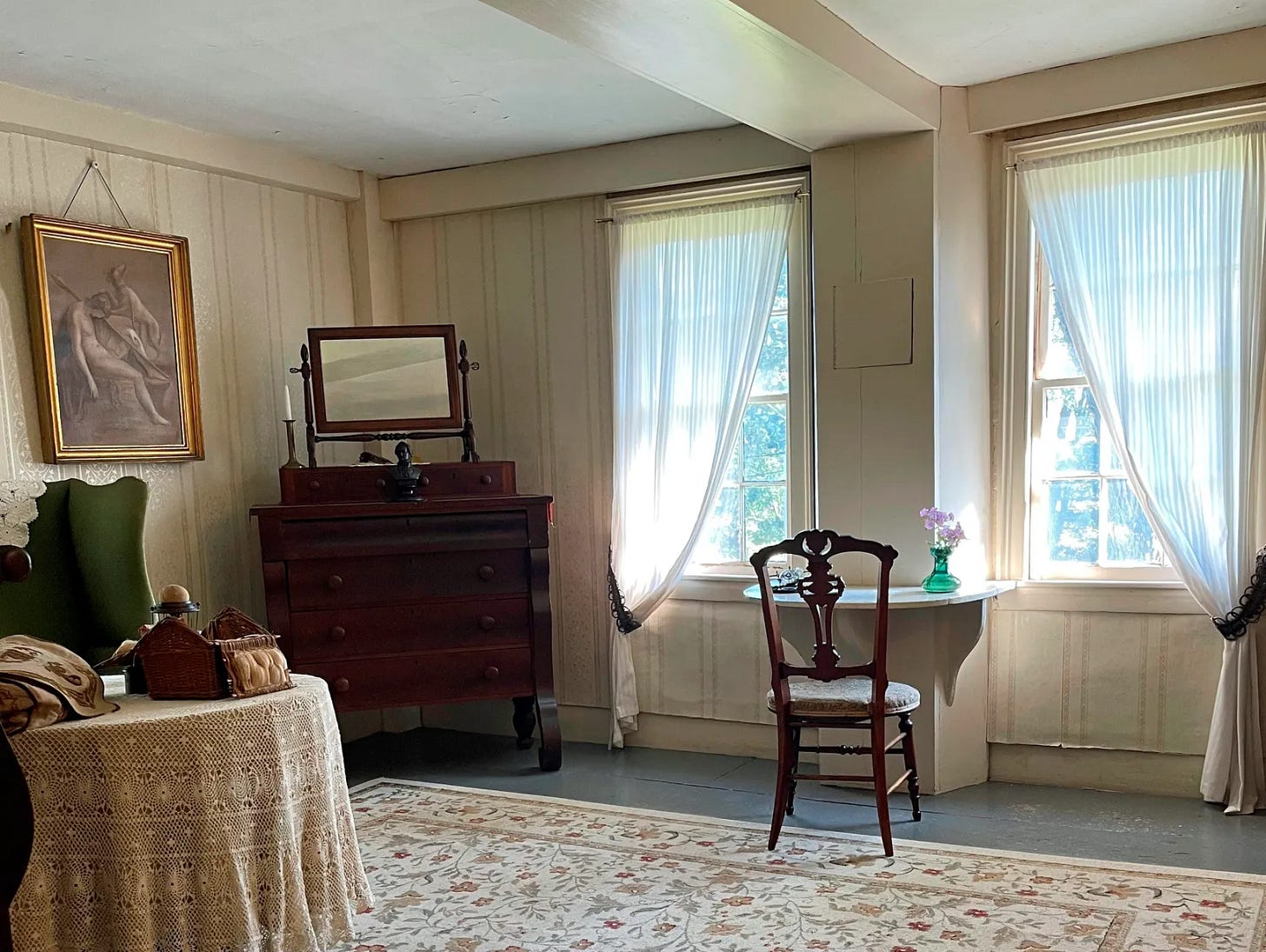The Literary Past: Little Women Part 3
The Reality that Shaped Louisa May Alcott and Her Fiction
It’s the 1850s in Concord, Massachusetts, and a young Louisa May Alcott is already in motion. Her restless energy hums in her limbs. Her mind is as crowded as her family’s parlor, where voices overlap in debates about education, morality, and the fate of the country.
But the conversation is never only about ideas. In the Alcott household, philosophy doesn’t pay the grocer. Her father, Bronson Alcott, is a brilliant man, but he’s also idealistic and utterly impractical. Her mother, Abigail, carries the weight of keeping them afloat — stretching meals, negotiating debts, and finding ways to feed and clothe four daughters. Louisa observes it all. And she knows that if she wants more than bare survival, she will have to earn it.
She tries everything respectable for a young woman: teaching, sewing, and taking work as a governess. None of it pays enough. So she turns to the one thing that has always been hers, writing. At first, it’s sensational thrillers published under a pseudonym, the kind of stories she’d never admit to in polite company. They sell. They keep the household warm a little longer.
Then comes the war. In 1862, Louisa leaves Concord for Washington, serving as a nurse in overcrowded Union hospitals. The work is brutal with the stench of infection and the cries of men far from home. Among the physical horrors, she helps soldiers write letters home who won't live to receive a response back. Illness forces her back to Massachusetts, but the experience pours out of her as Hospital Sketches, a slim volume that earns her national attention when it is published in 1863.
By the late 1860s, Louisa had made a name for herself. Not a fortune, but enough that her publisher, Roberts Brothers, knows to listen when she pitches a story. It’s a practical relationship: they need books that sell; she needs a steady income. In 1868, they approach her with a request: Louisa, write a book for girls. Louisa is unenthusiastic. She doesn’t read girls’ books. She doesn’t even like them. But she understands deadlines and bills, and she has long practice turning necessity into work.
She sits down at her desk in Orchard House and begins. She writes fast, drawing on the only material she truly knows inside and out: her own family. And that is how we arrive at the March family — four young women and their mother, whose home, values, and struggles bear a striking resemblance to the world Louisa has been living all along.



